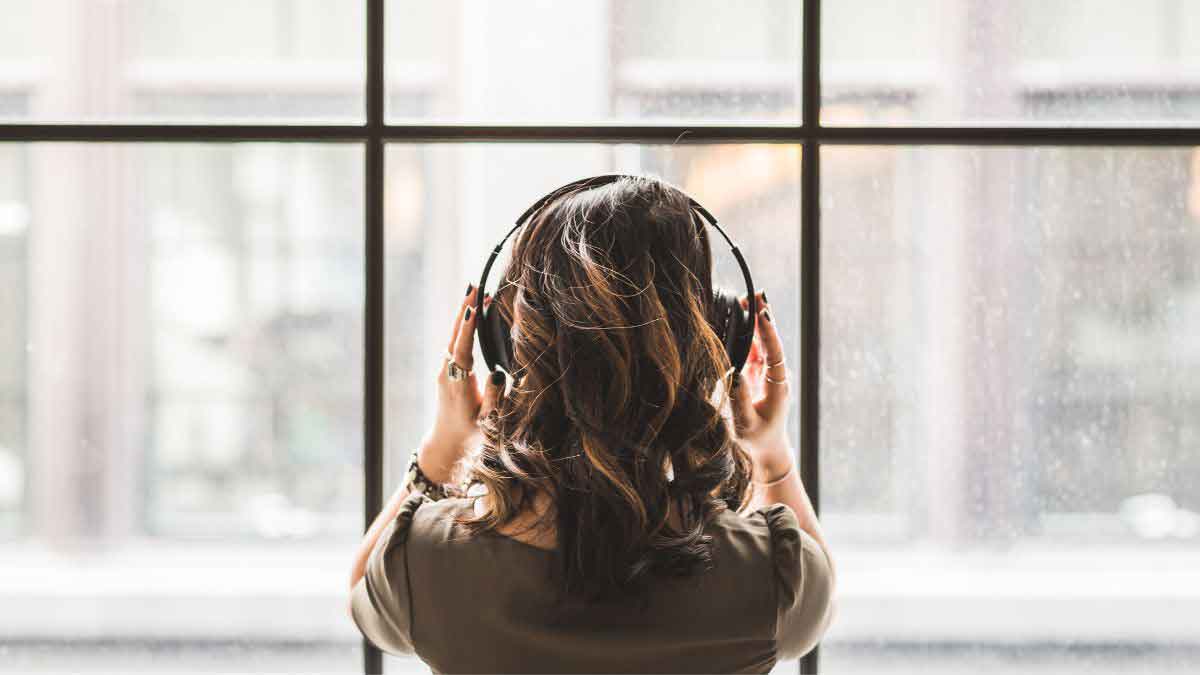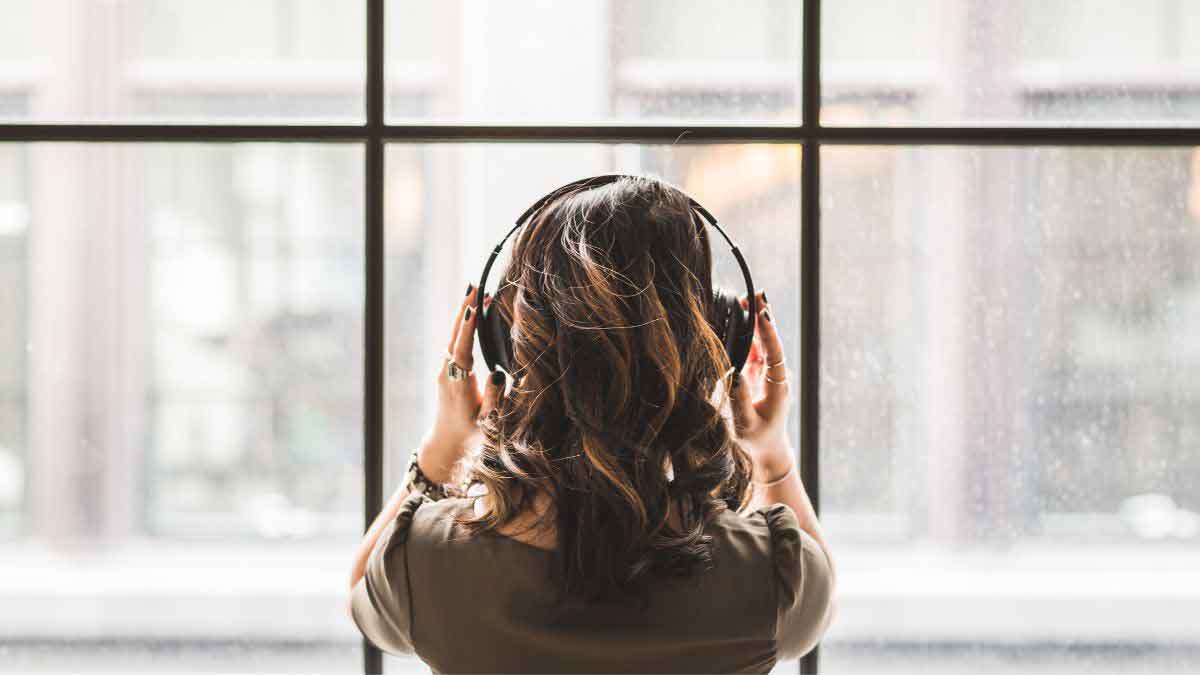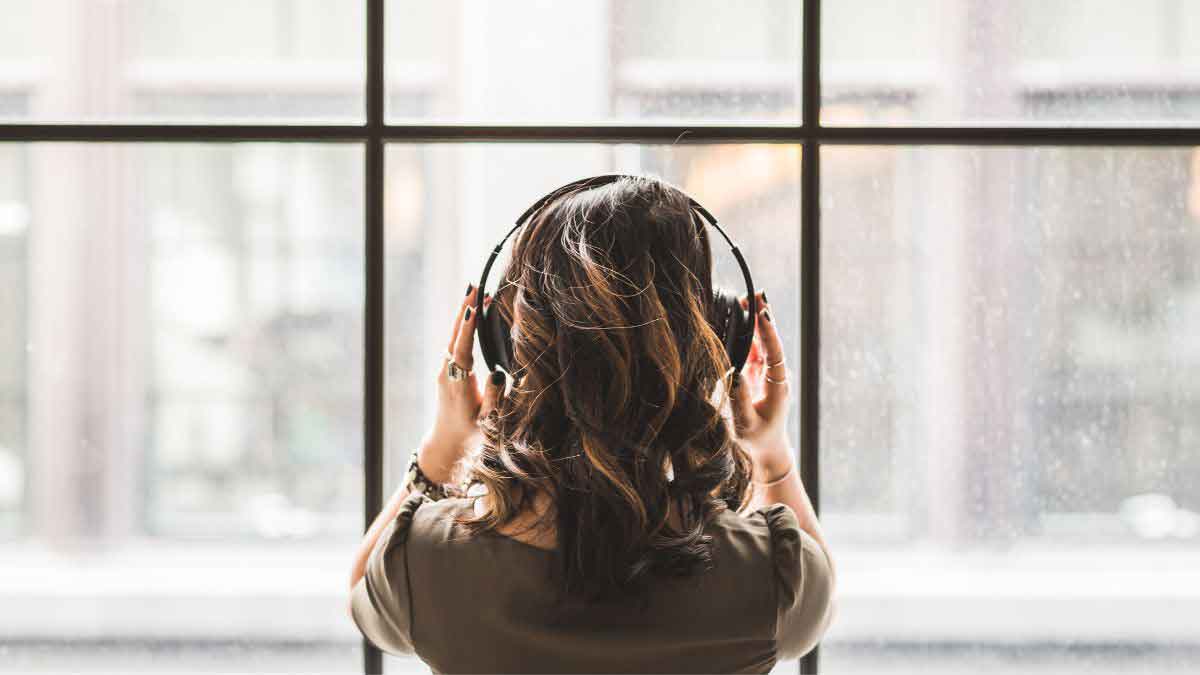Tune-Yards & Concert Venue Accessibility

Merrill Garbus of Tune-Yards joins hosts Jim DeRogatis and Greg Kot for a conversation about their new album, Sketchy, and the complicated ideas about race that informed it. Plus, they interview writer Josh Terry about how the live music industry can be more accessible as concerts resume.
Tune-Yards

Jim and Greg talk with Merrill Garbus of Tune-Yards about her new album, Sketchy, and the importance of finding pleasure in difficult work around racial justice. They also discuss her growth as an artist in the ten years since she was last on Sound Opinions.
Listener Segment
The hosts hear from some of their listeners about recent shows and suggestions.
Josh Terry

The hosts talk with music journalist Josh Terry about his recent article for Vice on the challenges disabled music fans face trying to access concerts. During the pandemic, live-streams have given many music fans a chance to experience live music and they hope to maintain this access as live music returns.
Transcript:
Jim: Welcome back to Sound Opinions, I’m Jim DeRogatis, my partner is Greg Kot and this week we’re talking with music journalist Josh Terry about his recent Vice article on how live music should be more accessible for disabled fans, and what venues can do to improve those fans’ experiences. Josh, welcome to Sound Opinions.
Josh: Hey, thank you so much for having me.
Greg: This is an interesting piece because this is an ongoing issue. But the sense I get from your piece is that if it was a tough issue before for the disabled, access to concerts, you know, understanding what they’re getting into before a show, as you can imagine, would be a central question for any person who’s facing these difficulties. It’s going to be exacerbated when live music comes back, whenever it does come back. What sort of prompted you to delve into this?
Josh: In the past, I'd say 14 months, my beat has sort of shifted, you know, not having concerts. Normally I would be writing about cool bands I really like and I still do that, but definitely not as much now that there are no shows. So I've been focusing mainly on the plight of venues and people who have been out of work in the music industry and just sort of how the pandemic made life harder for everybody who works in music. Talking to people, it's been really great to hear the hope for the future, the hope that, like once we can safely return to live music, that, you know, venues can come back better than they were and talking to just people from different walks of life across the music industry, I realize that there are so many different avenues that that can happen. And one of them, which is I think one of the most underreported things in the music press, is accessibility. And it's been something that I have been thinking about, especially over the past 14 months. But the more I talk to people, especially disability activists who work in music, it's something that has been on my radar. And, you know, I'm just the guy who wrote the article. The people I interviewed for the piece have been doing this work and advocating for accessibility in live music for years. One person I talked to, her name is Cassie Wilson, and she started a website called Half Access, which is a non-profit organization which promotes accessibility of live music. But it's also a submission based website where people can review venues based on accessibility. And it's funny because like when I found out about this website, I mean, it was a few years ago, I was like, "all right, well, shouldn't this already be on the website for these venues?" And, you know, you can do a test, go to any local venue, they're going to say that they're accessible, but they're not going to say what that means. And they're not going to give, like, a detailed description of what that means for someone with a disability who goes to the show.
Jim: You know, try to get into a United Center show or a big stadium show with tickets sold through Live Nation. And who do you talk to about wheelchair access, about anything? You know, in some ways, I mean, look, you know, the smaller clubs beloved by Greg and me don’t have that info either, but you know who to call. And they will get on the phone and say, yeah, you don’t know, We only use it usually at Metro for hauling gear to the top fourth floor theater, which we don’t use that much. But, you know, we’ve got an elevator for you. At least you can talk to somebody. Who do you talk to at a Ticketmaster Live Nation United Center show?
Josh: Yeah, exactly. And, you know, the arenas are actually relatively accessible when you look at the broad spectrum of the types of venues, you know. Because the Americans with Disabilities Act, you know, arenas kind of have to have accessible seating. You know, they don’t advertise it. They don’t advertise it. But, you know, compared to, say, like historic venues that aren’t built to be accessible and compared to, say, like general admission shows where there’s no seats at all, it can be a little more a little more tricky to, like, navigate. And when we mean by the like, well, how is the venue accessible? It’s not just like whether or not someone can see the show. It’s like, are the bathrooms accessible, are the entrances accessible? Is the merch table accessible, you know, just like certain venues, whether it’s you know, it’s always through ignorance and not necessarily knowing, they check off one box and they’re like, all right, we’re good, when there’s actually so much more. And it’s not just a one size fits all solution.
Jim: Well, you make the point for those who are visually and hearing challenged that in some ways this pandemic and forced shutdown with streaming being the only alternative, has been a boon, you know, a show that they could not have attended because it’s just impossible. At a 150 general admission capacity venue, they can now stream. And to see that going away is causing ability rights activists to say, wait a minute. You know, some semblance of this to continue for the part of the audience that has been excluded would be nice.
Josh: Yeah, absolutely. And every person I talked to for this piece has said the exact same thing. You know, live streaming has been something that people have been advocating for for years, even before the pandemic. And, you know, and this was also one of the reasons why I wrote this piece now is because, as we all know, tours are saying they're coming back in the fall. And every major tour announcement I saw and every major tour announcement the people I talked to saw, there wasn't any sort of note about whether or not the shows would be available to live stream. And that's upsetting because it's, you know, live streams for people who don't really think about disability issues, think "ugh, I have to, like, log on to a computer and watch a show." It's not just that. It's a tool to bring people into the community who have otherwise been excluded or unable to join it fully. You know, every person I talked to just said, like, how great these live streams have been over the past 14 months. And, you know, I don't think they're going to go away entirely. Live Nation recently announced that they're equipping some of their venues with the technology to be able to live stream every show, which is really optimistic and great. And I hope I hope venues can, like, take a cue from that and understand ways that they can make their venues, whether or not it's from like a tech accessibility like standpoint by making live shows available to stream or if it's from making costly but necessary adjustments to their facilities so that they can be more accessible.
Greg: It’s almost like you need some kind of legislation that says, well, if you can’t offer proper access to disabled people, then you should be able to live stream the show at your venue.
Josh: I mean, I would definitely support that legislation. The Americans with Disabilities Act is only 30 years old. And, yes, disability issues have improved ever since that. But it’s only been 30 years. And there’s still so many more issues that have been popping up and ways that, you know, live music as a whole can make things more inclusive and more accessible.
Jim: Well, in 30 years and you still have how many El platforms in Chicago that are not accessible as they’re supposed to be according to the law.
Josh: Yeah, you’re absolutely right. And for a lot of these venues which are in historic buildings, there’s sort of a clause that they can say that, you know, the accessibility requirements aren’t really within reason. And, it’s going to be a different sort of story for each and every venue. No venue is exactly alike. And that’s a great thing. But at the same time, you know, it presents challenges for these venue owners and how their community can talk with them and how they can make their venues better.
Greg: Yeah, infrastructure costs money.
Jim: Well, that's why this was an eye opening piece, Josh. I mean, I think those of us who love live music, you know, nothing is going to be the experience of being in the room with the artists, feeling the bass drum in your chest. What if you can't have that experience? I think ninety nine point nine percent of us are "if I never see another live stream in my life, I'm going to be happy." I am done with pandemic quarantine computer as a bad simulacrum of a concert. What if you can't get to the concert? And that's the thing. I mean, you know, so many of the smaller venues, look, it's existential. They need to have 149 people in a 150 capacity room to make their nut for the night. So how then, if you just put it all online for everyone, people are lazy. They don't want to put pants on. They're going to stream. So how do you equitably for the economics of it, nobody saying give anybody anything for free. But how do you sell tickets like that and make it work? I mean, you must have been thinking about this and the many interviews you did must have dealt with it.
Josh: Yeah, you’re absolutely right. I do. I have an optimism for when it’s safe to return to live music that there’s going to be such a demand that venues probably won’t have to worry about whether or not they’re going to sell out shows. You know, I feel like people have been raring to go. And when it’s safe, I can’t wait to be at a show at Metro or Sleeping Village or Empty Bottle or any one of those great places I went to multiple times a week.
Jim: You’re right, back before the world ended.
Josh: But, I just think having the option and obviously, you know, as we all know, venues make their money on bar sales, but that shouldn't be the deciding factor in whether or not accessibility should [be improved.] It's not one or the other, you can have both and, you know, and if people who are able-bodied want to watch a live stream, they should be able to. And, yeah, I just think that, like, the demand for shows is going to be so prominent that that's not going to be the concern of venue owners or the music industry at large.
Jim: Some of the many interviews you did for this piece also were people with neurodivergent situations. Tell us about that. What did you mean by that and what are they asking for?
Josh: You know, when I talk about neurodivergence, I mean people who are on the autism spectrum or people who have invisible disabilities. Speaking from personal experience (and this doesn’t affect my daily life anymore) but when I was a kid, I was diagnosed with epilepsy. And as a kid, I loved going to shows. And for a while, we didn’t know whether or not it was photosensitivity triggering these seizures,
Jim: The strobe lights.
Josh: Yeah, that is a concern. And three percent of people with epilepsy are triggered by these strobe lights. And as we all know from going to live shows, that is a pretty prominent part of a lot of these productions. These are sort of the considerations that people with disabilities have to take with every show that they go to. You know, they have to do their research for the venue. They have to do the research for the bands. If you see (no shots on any of the artists I’m listing of this hypothetical) but if you see like, say, a Charlie XCX, the light show is going to be way different than if you would see a band like Whitney or, you know, Spun Out or anyone.
Jim: Yeah, right.
Greg: So what’s your checklist of the most important things that venues should be taking care of when it comes to serving this particular community? What do they need to do? What are the top three things?
Josh: The number one thing I would ask venues to do is sort of educate themselves on these issues and talk to their communities, update their websites, make sure that, like they have a detailed description of what their accessibility requirements are and their facilities and how it's going to go if someone who is disabled buys a ticket to their show. I think transparency is the number one thing. And I think this is what disability activists have been fighting for for years, even before the pandemic. Number two, live streams. You know, if you can't make the costly adjustments that you need to make your venue fully accessible, to have that alternative. And another one is kind of on the touring artists, too, because they have these fans. And when we talk about disability, it's one in four Americans, that's sixty one million people. It's a good chunk of potential fan base. That's a good chunk of the country we live in. You know, it was great to see the piece get some feedback from touring artists and being like, "how can we tour more safely?" And, you know, having that conversation with the venues and making sure to add ramps when there needs to be and also for venues, adding ramps for performers. You know, because I'm talking from the perspective of disabled fans and people in the community. But, you know, disabled musicians have their own set of problems. And you talk to people and they don't play certain venues because they just can't get to the stage.
Jim: Yeah, those narrow, winding spiral staircases of three floors from green room to stage.
Josh: Yeah. Yeah. You're making me miss Subterranean, Jim!
Jim: Oh, I, you know, carry your Marshall stack up those stairs man. Thank you Josh for joining us on the show and talking about this important issue.
Josh: Well, I appreciate that, Jim. Thank you all for reading and having me on.
Featured Songs:
- Tune-Yards, "hold yourself.," Sketchy, 4AD, 2021
- Tune-Yards, "Bizness (Live on Sound Opinions)," Whokill, 4AD, 2011
- Tune-Yards, "Now as Then," I Can Feel You Creep Into My Private Life, 4AD, 2018
- Tune-Yards, "homewrecker," Sketchy, 4AD, 2021
- Tune-Yards, "make it right.," Sketchy, 4AD, 2021
- Brocelïande, "Abbots Bromley Horn Dance," Flowing Glass: Sir Christèmas, Flowinglass Music, 2000
- The Coup, "Hey Saturday Night (feat. Tune-Yards)," Sorry To Bother You: The Soundtrack, Interscope, 2018
- Tune-Yards, "Money Money Money," Sorry To Bother You: The Score, Interscope, 2019
- Craig Brenner, "Spring Is Near," Passages, (Self-released), 2020
- Tune-Yards, "silence pt. 1 (when we say we)," Sketchy, 4AD, 2021
- Led Zeppelin, "The Battle of Evermore," Led Zeppelin IV, Atlantic, 1971
- Talking Heads, "The Great Curve," Remain in Light, Sire, 1980
- Earth, Wind & Fire, "Spirit," Spirit, Columbia, 1976
- Rare Earth, "Get Ready," Get Ready, Rare Earth, 1969
- Bachelor, Jay Som, Palehound, "Stay in the Car," Stay in the Car (Single), Polyvinyl, 2021
Dear Listeners,
For more than 15 years, Sound Opinions was a production of WBEZ, Chicago's public radio station. Now that the show is independent, we're inviting you to join the band and lend a hand! We need your support more than ever because now we have to do all the behind-the-scenes work that WBEZ handled before (like buying insurance and paying for podcast hosting, ugh). Plus, we have some exciting ideas we'd like to try now that there's no one to tell us no!